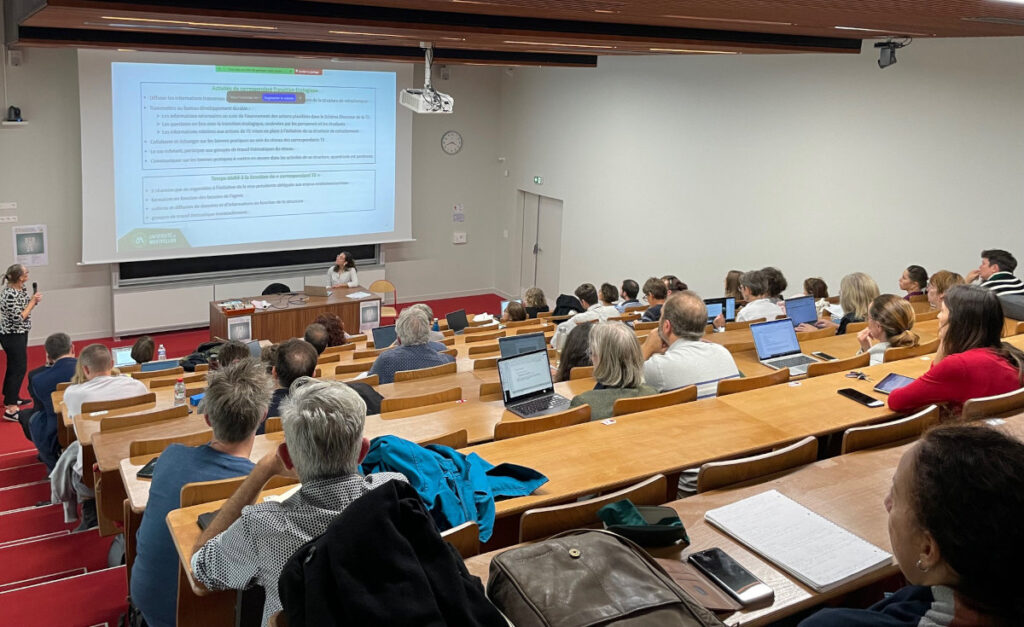A network dedicated to greening UM
On October 14, the launch meeting of the ecological transition correspondents network was held. Designed to be a catalyst for change, it brings together passionate and committed individuals around a common goal: to strengthen UM's commitment and practices in terms of sustainability and innovation for ecological transition. The University hopes to improve its internal practices and encourage other higher education institutions to follow suit.

This is a key milestone for the University of Montpellier in the rollout of its ecological transition master plan (SDTE): the network of ecological transition correspondents met for the first time on October 14 in the presence of Philippe Augé, president of the UM, and Frédérique Carcaillet, vice president for environmental issues. The correspondents attended a presentation on the University's SDTE, as well as the network's objectives and schedule.
A desire to take action
They are teachers, Professors, researchers, library staff, engineers, administrative, technical, social, and health personnel (BIATSS), and they share a keen interest in ecological transition issues and a desire to take action. As true ambassadors of ecological transition, these correspondents are responsible for raising awareness of environmental issues within the community.
With this in mind, the presentation of the network's missions clarified the roles and responsibilities of the correspondents, emphasizing the importance of their commitment. A detailed schedule of the next steps was also unveiled, including the various committees and meetings in which the network will participate. A discussion session allowed correspondents to ask questions and make proposals, such as the creation of a platform for exchange between correspondents from research organizations to facilitate cooperation between laboratories.
Network objectives
The establishment of this network of correspondents responds to various needs and challenges that the University faces due to its size. With more than 5,000 staff and 50 With 000 students spread across more than 17 sites and 73 research facilities, it can sometimes be difficult to keep track of all the different projects being rolled out in the areas of ecological transition and SDTE implementation. This task force will therefore be able to instill a culture of ecological transition at the grassroots level and unite the community around objectives and initiatives aimed at making the University greener.
In addition, this network will create synergies between the various structures, thereby facilitating the implementation of the UM's ecological transition policy. This network also plays an important role in terms of information flow between the various structures and the sustainable development office within the steering committee. The more information circulates, the more the UM will be able to respond, improve, adapt, deploy, and strengthen the implementation of the SDTE. Through their commitment, the correspondents contribute to amplifying the culture of sustainability within the University, thereby encouraging collective awareness and concerted action for a successful ecological transition.